Portal for more climate-friendly mobility
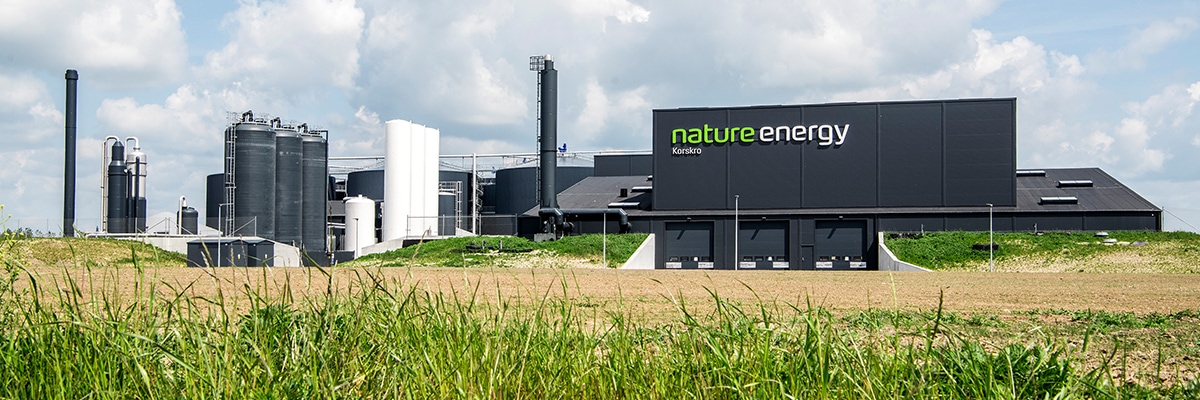
Danes turn waste into raw material
Among other things, the world’s largest biogas plant ensures a more climate-friendly energy supply in Denmark – which is why the small country on the North and Baltic Seas now already has the largest proportion of biogas in the world. Nevertheless, the biogas sector is being further expanded in a targeted manner.
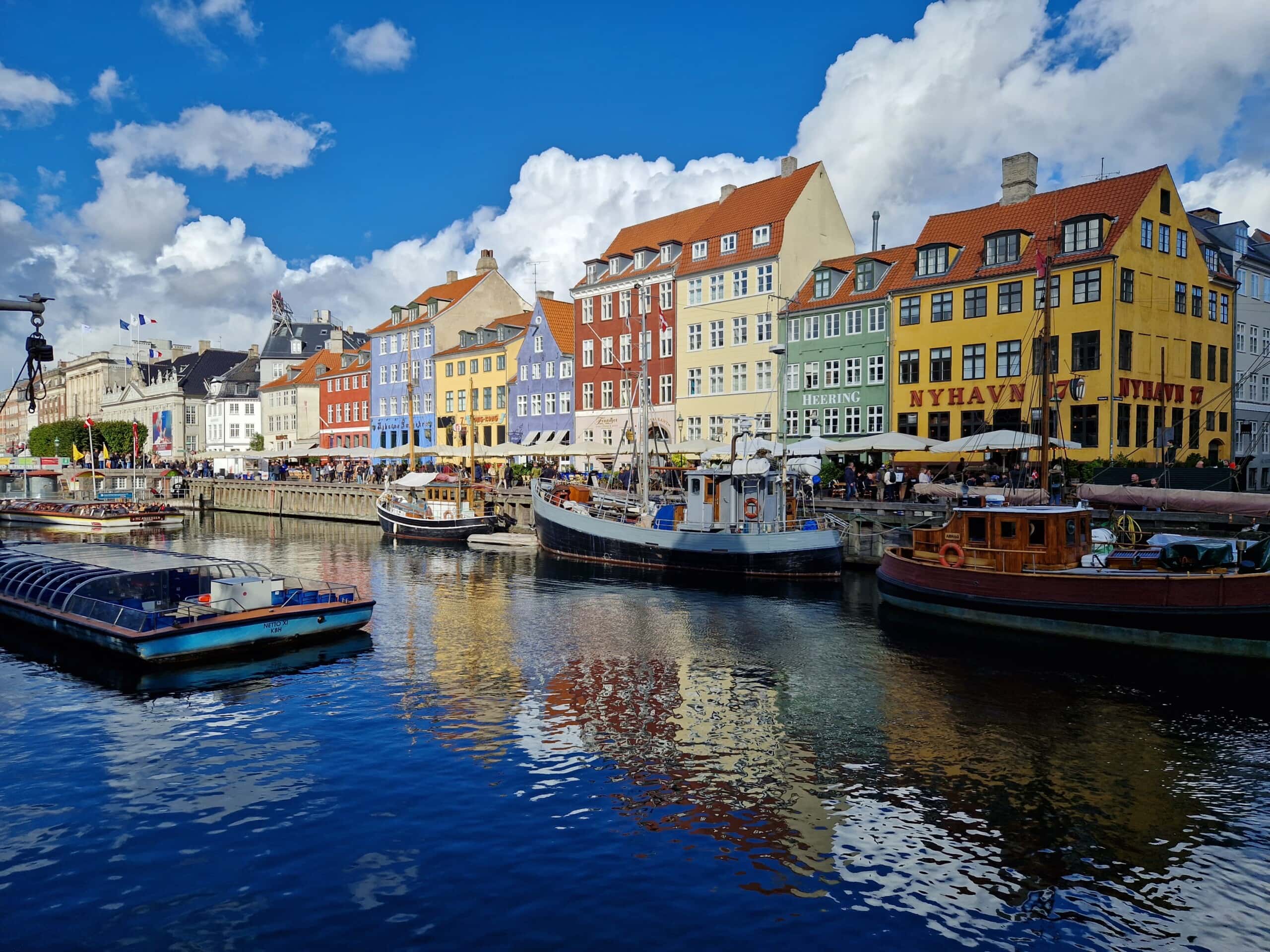 Thanks to biogas, Denmark’s energy supply may soon be as idyllic as Nyhavn, one of the most important sights in the capital Copenhagen. Source: CNG-Mobility.ch
Thanks to biogas, Denmark’s energy supply may soon be as idyllic as Nyhavn, one of the most important sights in the capital Copenhagen. Source: CNG-Mobility.ch
In the north and quoting freely from William Shakespeare’s Hamlet, something really is “rotten in the state of Denmark”. But there’s a positive side to the fact that something is rotting here: in the small kingdom with 5.8 million inhabitants, biogas now already has a share of 40% of the country’s total gas market. In 2021, the proportion of biogas was still around 25%. In about ten years, this figure should even be 100% biogas. Thus, the many cows and pigs with their slurry are helping to pave the way for the Danes to become energy independent.
No wonder, therefore, that the world’s largest biogas plant to date was commissioned by Nature Energy in Korskro, Denmark in August 2019. It is located in South West Jutland, one of the most cattle-rich areas in Denmark, which provides a stable supply base and the best conditions for good, sustainable gas production. Korskro processes around 710,000 tonnes of biomass a year, which is fermented into biogas in the seven reactor vessels, each with a capacity of around 9,500 cubic metres.
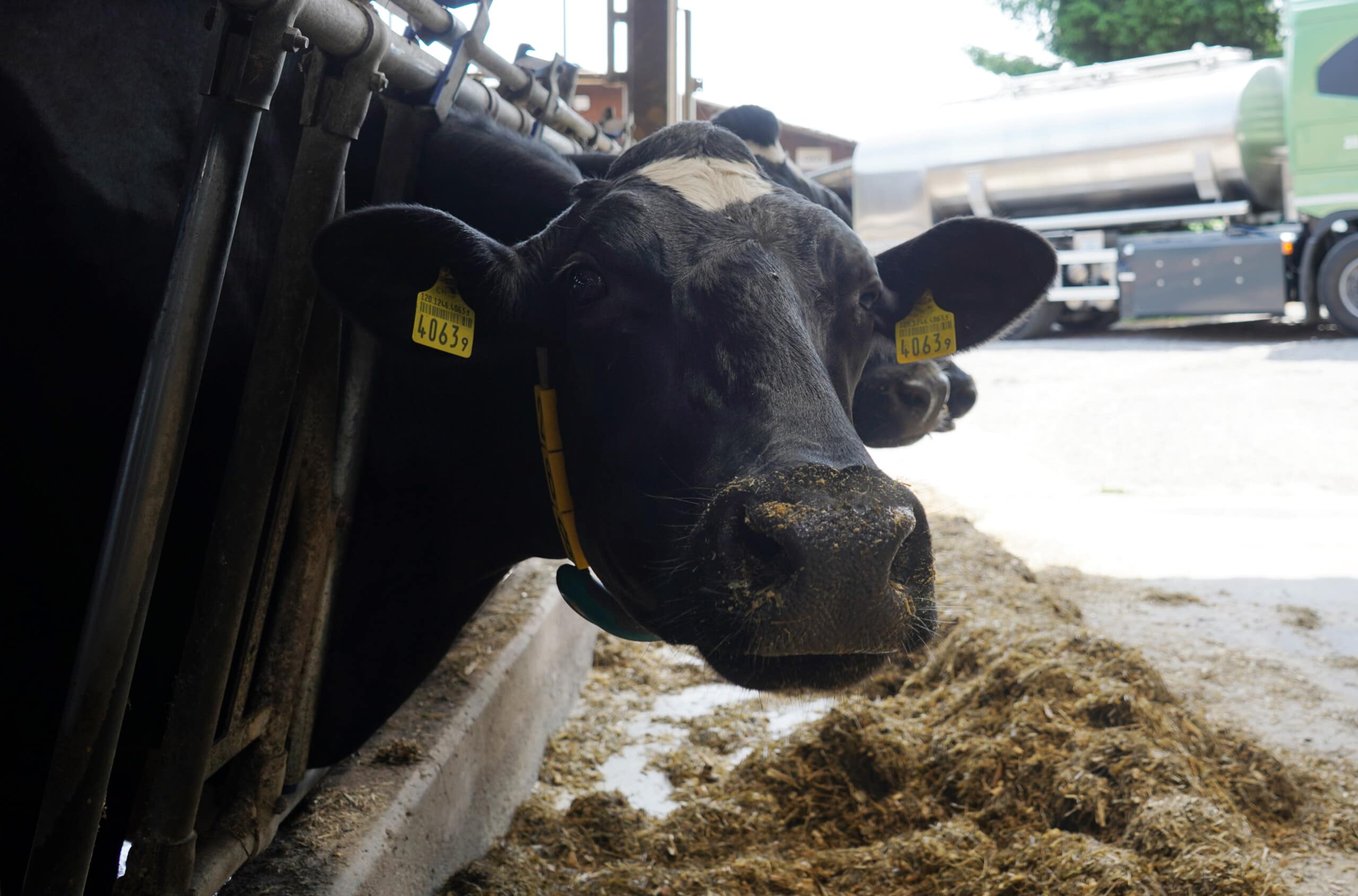 Cows and pigs with their manure pave the way to energy independence for the Danes. Source: CNG-Mobility.ch
Cows and pigs with their manure pave the way to energy independence for the Danes. Source: CNG-Mobility.ch
In addition, some of the biogas that is separated in the treatment plant is also purified, thus producing pure, biogenic CO2. This can be used for a wide variety of industrial applications, such as the production of beer or sparkling mineral water. The new CO2 plant operated by the company Strandmøllen A/S is so large that it can cover around one third of Denmark’s industrial CO2 consumption.
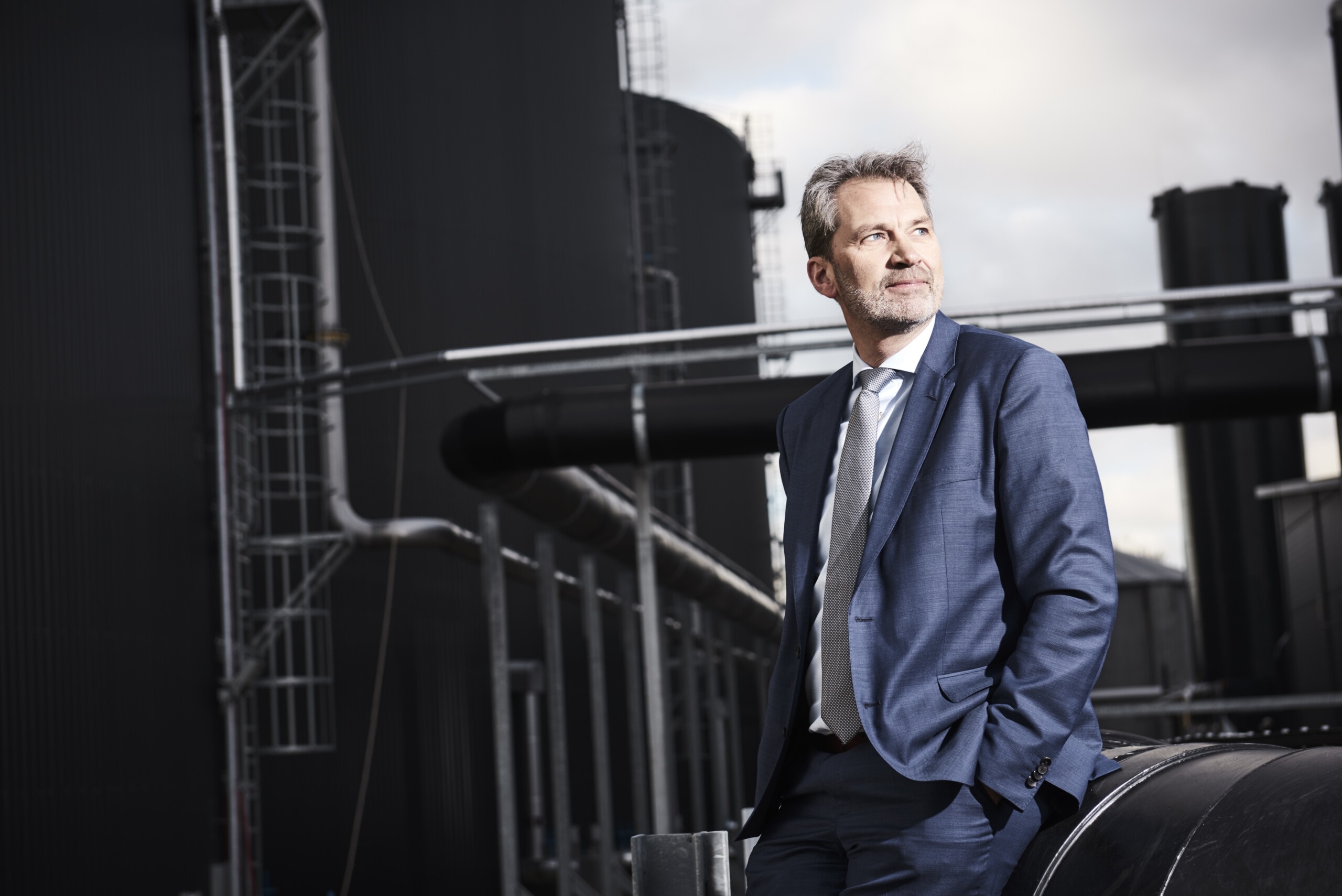 Ole Hvelplund, CEO of the Danish company Nature Energy since 2013, wants to drive climate change worldwide thanks to biogas. Source: Nature Energy
Ole Hvelplund, CEO of the Danish company Nature Energy since 2013, wants to drive climate change worldwide thanks to biogas. Source: Nature Energy
Over the years, Nature Energy has become a major player in the field of green transformation and now operates 13 biogas plants in Denmark and one in France. In 2022, 4.4 million tonnes of biomass were processed and converted into more than 181 million cubic metres of green gas. This would enable 157,000 households to be heated in a climate-neutral manner or 8,000 buses to each clock up 30,000 kilometres per year in a virtually CO2-neutral way! “At Nature Energy, we want to produce biogas on a global basis,” explains Ole Hvelplund, CEO of the Danish company since 2013. “Our goal is clear: we will play a significant and active role in transforming energy consumption around the world.”
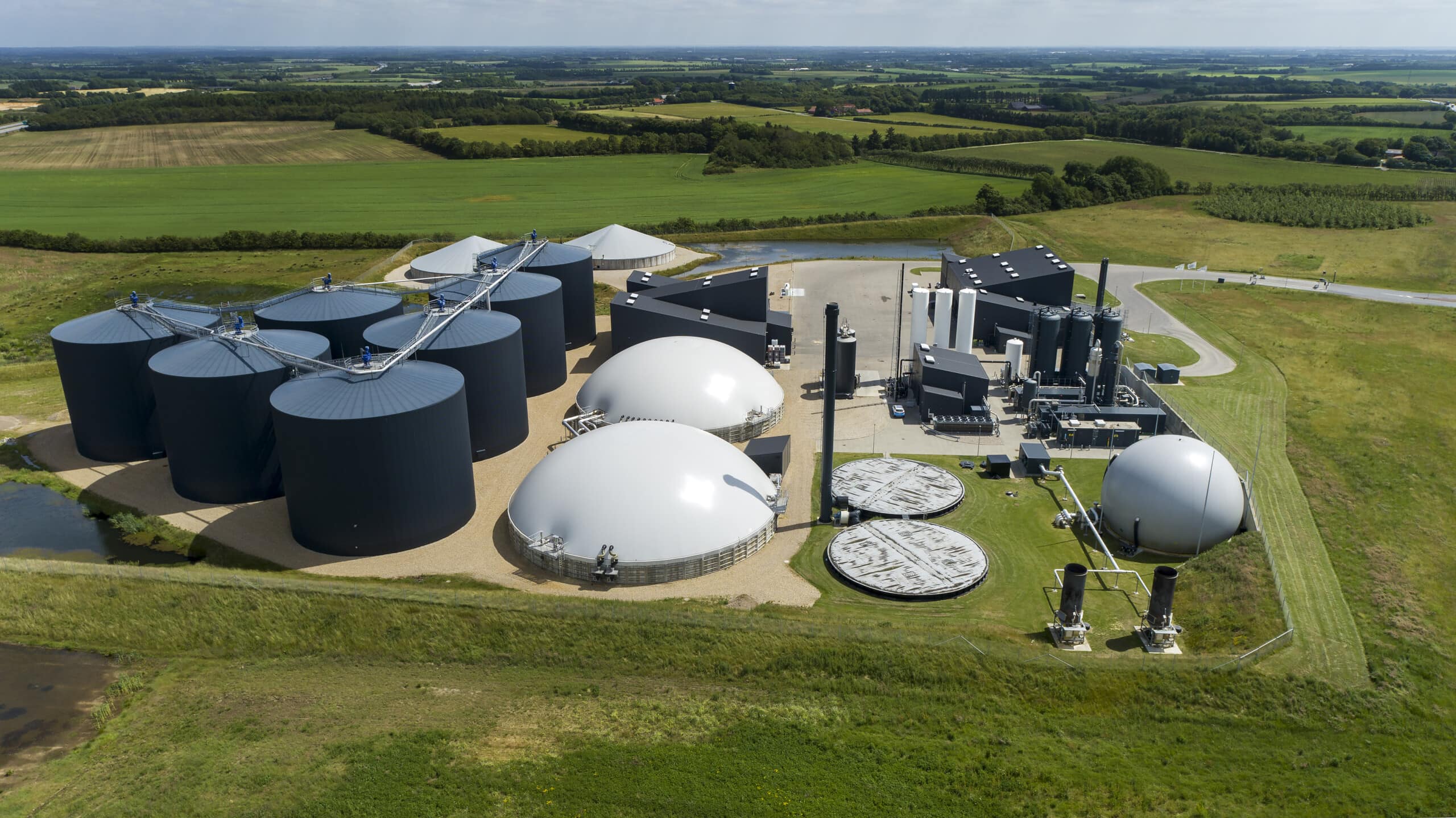 The new biogas upgrading plants to be installed in Kvaers and Kong are similar to the plant in Korskro, Denmark, delivered by Wärtsilä in 2018 and operated by Nature Energy. Source: Nature Energy/Claus Haagensen
The new biogas upgrading plants to be installed in Kvaers and Kong are similar to the plant in Korskro, Denmark, delivered by Wärtsilä in 2018 and operated by Nature Energy. Source: Nature Energy/Claus Haagensen
Nature Energy is also working intensively on Power-to-X technology. This could effectively turn the gas grid into a large battery for green electricity. “This will help to solve the key problem of storage,” says Ole Hvelplund with conviction. “If we combine the biogas potential with excess electricity from solar cells and wind turbines, we can generate PtX, making it a huge green resource for the green transition. If we work closely together across the entire energy sector and use all technologies, we will be able to make Danish gas consumption CO2-neutral in as early as 2034 – six years earlier than expected.”
Source: ARD
The Danish example is setting a precedent and above all is arousing interest in the rest of Europe. The German TV channel ARD dedicated a report to the Danes’ promising biogas cycle in “Europamagazin” on 13 November 2022. The article not only shows how farmers like Peter Høj help to produce regional green gas for greater energy independence and a lower environmental impact. He also makes it clear that the expansion of biogas production is a win-win situation. This is because the tanker truck that fetches slurry from Høj the farmer later brings fermented manure back from the biogas plant. Compared to conventional slurry, this is better absorbed by plants and has lower emissions. The Dane can spread it on the fields instead of expensive conventional fertiliser – just one of the many advantages offered by the Danish circular model.
Recognising the promise of biogas and its production, energy giant Shell announced this week that it will acquire Danish biogas producer Nature Energy for nearly $2 billion to strengthen its low-carbon business amid growing interest in biogas. (pd/jas, 29 November 2022)
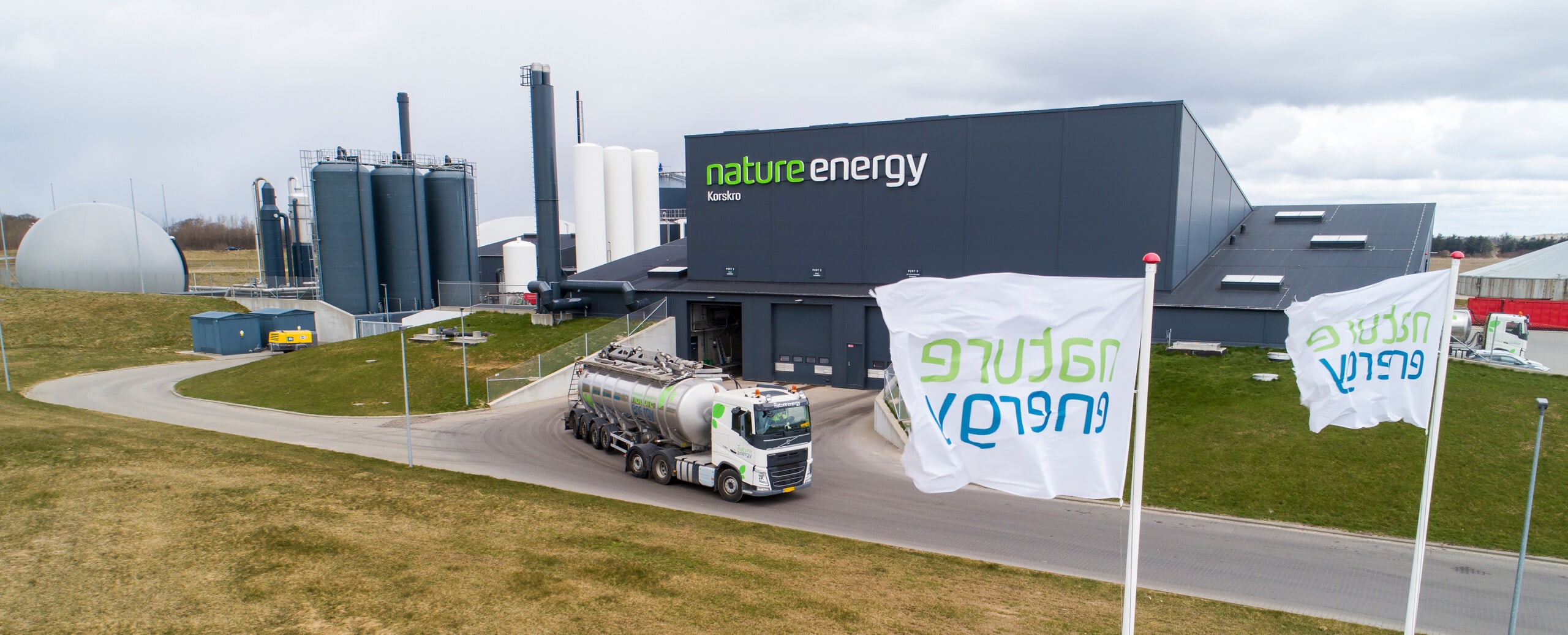 The world’s largest biogas plant to date was commissioned by Nature Energy in Korskro, Denmark, in August 2019. Source: Nature Energy
The world’s largest biogas plant to date was commissioned by Nature Energy in Korskro, Denmark, in August 2019. Source: Nature Energy
You might also be interested in
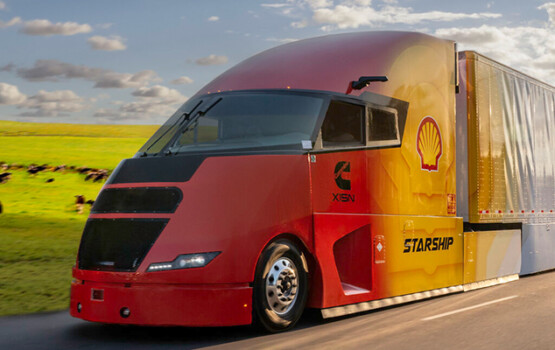
Shell Starship on record hunt
